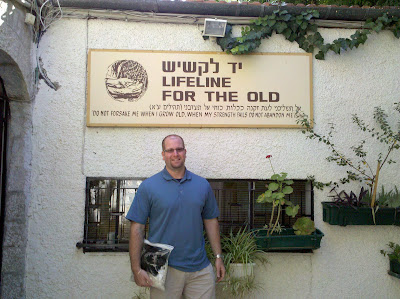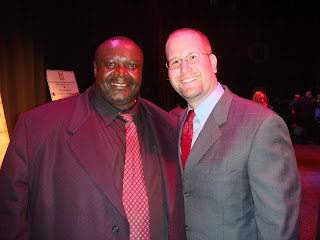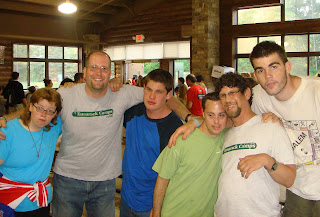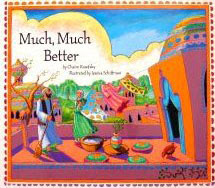Listening to the Torah reading on Shemini Atzeret this past Shabbat morning, my attention was focused on the hungry. One might think that it would have been on Yom Kippur that my attention was on the hungry as I spent the day fasting. However, I couldn’t help but think of those human beings without enough sustenance during the Sukkot festival and into the holiday of Shemini Atzeret.
On 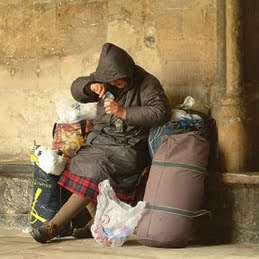 Sukkot, we move outdoors and dwell in temporary shelters. In the warm climate of Israel this is a nice custom — spending seven days outdoors eating meals in the warm sukkah. However, with the heavy rainfall that lasted the entirety of the Sukkot festival here in Detroit, how could one sit in the cold, wet sukkah and not think of those who must brave the elements each night on the street.
Sukkot, we move outdoors and dwell in temporary shelters. In the warm climate of Israel this is a nice custom — spending seven days outdoors eating meals in the warm sukkah. However, with the heavy rainfall that lasted the entirety of the Sukkot festival here in Detroit, how could one sit in the cold, wet sukkah and not think of those who must brave the elements each night on the street.
Many friends told me how their sukkah could not withstand the windy weather and it toppled over. It was easy to make the connection for them that during those rainfalls and wind storms, there were human beings sleeping on the streets of Downtown Detroit in empty refridgerator boxes. When one’s sukkah collapses from the inclement weather, one quickly returns into the safety of their sturdy house. This is certainly not an option for the men and women on the street.
We often say that the sukkah stands to remind us to be thankful for the safety and security of our homes — our shelter. We should be grateful that after the eight-day holiday we are free to return to our permanent dwelling place. However, the truth is that the sukkah is not analogous to the temporary shelter of a homeless person. We spend the holiday feasting with family and friends inside our beautifully decorated sukkah, and most of us then return to our comfortable houses to sleep safely through the night. A local rabbi in Detroit who owns a heating and cooling business even told me that he installed a heating unit complete with duct work in someone’s sukkah this year. That is certainly not an option for a homeless person, living in poverty, trying to brave the cold on the streets.
But it wasn’t just the sukkah that turned my attention to the hungry and the homeless during the Sukkot festival. Days before Sukkot, I attended author Mitch Albom’s event at the Fox Theatre in which he talked about his experience at homeless shelters in Detroit. Albom began flexing his philanthropic muscle to benefit the homeless a few years ago as Detroit was gearing up to host Superbowl XL.
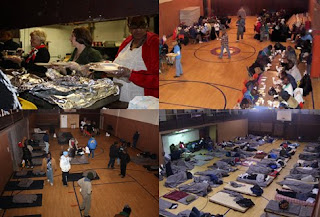 To get a sense of what the homeless and hungry must endure, Albom found himself at a downtown shelter, a Christian rescue mission where he would spend the night. He waited on line for a blanket and soap. He was given a bed. At one point, in line for food, a man turned and asked if he was Mitch Albom. Yes, Albom said. The man nodded slowly. “So… What happened to you?” It could be any of us in that situation.
To get a sense of what the homeless and hungry must endure, Albom found himself at a downtown shelter, a Christian rescue mission where he would spend the night. He waited on line for a blanket and soap. He was given a bed. At one point, in line for food, a man turned and asked if he was Mitch Albom. Yes, Albom said. The man nodded slowly. “So… What happened to you?” It could be any of us in that situation.
Albom’s book Have a Little Faith forces the reader to consider the lives of those who live on the streets and spend their nights in deteriorating church shelters in the dangerous neighborhoods of downtown. It certainly made me appreciate my house. I think my sukkah was in better condition than some of the homeless shelters I read about in Albom’s book.
* * *
My attention was also sharply focused on the less fortunate — the hungry and the homeless — during the Sukkot festival for another reason. The local Detroit kosher food pantry, Yad Ezra, hosted their annual dinner during the intermediate days of Sukkot. Yad Ezra must be praised for the holy work they do: They provide free kosher food, toiletries, and household cleaning items to low-income Jewish families in Southeast Michigan.
It would be considered blasphemy to criticize this important communal organization. And yet, I was left extremely surprised that during Sukkot they held their annual dinner at a local synagogue. The “strolling dinner,” which likely cost the organization over $20,000, fed their donors gourmet food while their beneficiaries were standing in line for dinner at shelters in the rain. Their mission is to feed the hungry in our community, and yet on that night it was the well-to-do donors that sustain the organization who were fed. It seems that their priorities were not in tune with their core mission.
I’ve been to many non-profit fundraising events that serve expensive, delicious meals. Of course, one could argue, it’s better not to wine and dine, and just allow all the donations to go to the organization’s mission and overhead. However, these events are part of the culture in the fundraising world. I take exception, however, with the Yad Ezra annual dinner because it is their stated mission to feed the hungry through their kosher food bank. To have an excess of food at this event and to spend the evening talking about feeding the hungry seems paradoxical to me.
I imagine a more appropriate event for this agency in which they encourage their donors to stay home, have a nice dinner in their sukkah with their family and then come to the event to help honor one of their most dedicated donors. They would be asked to bring a bag of non-perishables (even though many did just that before Yom Kippur). The agency leaders could then tell the donors how much money was saved by not serving a full meal or providing a strolling, all-you-can-eat buffet. The donors would be relieved and would not feel guilty eating excessively while talking about the needs of the hungry in the community.
* * *
Finally, my attention was directed at those less fortunate during the Torah reading on Shemini Atzeret. Most of Deuteronomy chapter 15 is concerned with ensuring that there not emerge in the Israelite nation a permanent underclass (persons unable to lift themselves out of poverty). The Torah reading discusses the remission of debts every seventh year and the laws of lending to the poor. Five verses (15:7-11) in the chapter outline Jewish poverty laws requiring us to feed, clothe, and house poor non-Jews as well as Jews. The next verses promote a fair severance pay for workers.
 This Torah reading gets to the heart of Jewish ethics and the ideal way in which we must treat our fellow human beings (be they Jewish or gentile, workers or the unemployed). We have a clear role to take care of those less fortunate — the hungry and the homeless.
This Torah reading gets to the heart of Jewish ethics and the ideal way in which we must treat our fellow human beings (be they Jewish or gentile, workers or the unemployed). We have a clear role to take care of those less fortunate — the hungry and the homeless.
As I listened to these verses being chanted, I thought about Nathaniel Popper’s harsh critique in the Forward of the Hekhsher Tzedek commission’s Magen Tzedek. He argues that Conservative Jewish leaders who support the “living wage” have done little to lead by way of example and emulate this ethic in their own synagogues. He quotes my colleague Rabbi Jill Jacobs, who wrote a teshuvah (religious ruling) promoting a living wage and edited a book about pursuing social justice to benefit the needy. She said, “There’s somewhat of a reluctance to look inward and think and talk about our own employment practices.”
Fact is, Popper is correct. It is disingenuous for rabbis to call for higher wages and better working conditions at kosher food companies (e.g. Rubashkins) before ensuring that their synagogue’s own janitors and nursery school teachers are compensated fairly. It is easy to levy standards on other establishments, but much more difficult to attain those standards at home first.
What is most important is to work toward a society in which there is no permanent underclass. Not everything will be equal — or even close to it — because that’s not realistic. But we all must help those less fortunate and those who are currently struggling. Not only in the food industry, but in every industry. We should be a part of the process that allows for every working man and woman to earn a fair wage; one in which they can support their family. We rabbis must begin by ensuring that those men and women who clean our synagogues and teach our children are being paid adequately and treated fairly. Then we can branch out to the community-at-large.
Those are the ethics of hunger and homelessness. The ethics of fair rights for the working class. And those are the ethics by which we should strive to live.
(c) Rabbi Jason Miller | http://blog.rabbijason.com | Twitter: @RabbiJason | facebook.com/rabbijasonmiller
Walking through the different craft rooms I was amazed at what these busy elderly artisans were creating. Senior citizens from all walks of Israeli life were putting their talents to work at a time when many of their contemporaries were enjoying their retirement and moving into homes for the aged. I remember seeing the pride on the faces of the Ethiopian and Russian immigrants who brought their artistic ideas from their home country and were able to see their crafts being sold in the Yad LaKashish gift shop.
